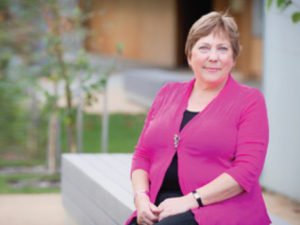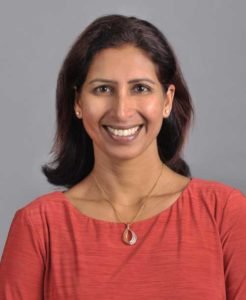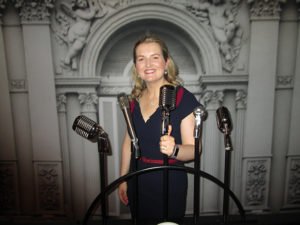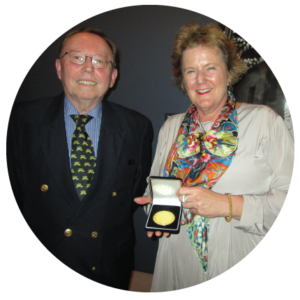As the Award Convenor of The Australian Career Book Award – supported by the Royal Society of Arts in Australia and New Zealand it’s my privilege to interview the writers of the finalist books for Career Writer of the Month.
I started off with the same list of questions, but each interview seemed to take off with a life of its own! It looks as though when you corner creative people they won’t stay in the box for you. As a qualitative researcher I’m always looking for emerging themes, and think I can see a number bubbling up from these interviews.
Lawrence Arnold FRSA
April
The Career Writer of the Month for April is Dr Catherine Hughes for the series ‘Careers Work in Schools’

Catherine has over 30 years experience in delivering career services in schools. She has a PhD in vocational psychology and two post-graduate qualifications in career education. Catherine is the Founder of the Grow Careers website, International Adviser to CareerMe in Sri Lanka, Career Development Consultant and Author. Catherine has been invited to write content for national career websites and online courses to support student career development and develop professional learning materials for teachers delivering career education courses. She has been a member of writing teams for national and state career development curriculum. Catherine and has delivered professional learning workshops for teachers delivering career education and career services and workshops at national and international career conferences. She was the recipient of the Career Development Association of Australia 2013 Researcher of the Year Award. More recently her work in career development was recognised when she was selected as a finalist in the 2018 Tasmanian Community Service Awards, Outstanding Achiever Award category and her books, Careers work in schools: A primer for career development facilitators and Careers work in schools: Cost-effective career interventions were selected as finalist books for The Australian Career Book Award supported by RSA ANZ in 2018.
How did you go about writing the book?
My PhD literature review summarised theories of career development and research relevant to adolescent populations. Also, I’ve had many years of experience working as a career practitioner in schools. I blended these two aspects of my own career to write two books to support the work of career development practitioners, teachers and others who provide career information and support to secondary school students. So I had a lot of content I could draw on for inspiration and I had already written a literature review to guide me in what I should write.
Having worked in schools for a long time I know how time-poor career practitioners and teachers are. Some teachers may be asked to deliver a career development course or take on a careers adviser role even though they don’t have a background in career development. So, there are members of school staff who may want to quickly gain a background in career development to build their confidence in delivering career education programmes and advising students and their families. This is why my books are short and quick to read. But for small books, they are surprisingly comprehensive and I’m proud of that. I love career development theory, but I know it’s not everyone’s cup of tea. For this reason I made sure the two careers work in schools were highly practical. The books refer to high quality and freely available tools and resources that teachers and career practitioners can use to support their careers work.
What are the most innovative aspects of the book?
I would have to say that the integration of theory, research and practice, illustrated with contemporary practical tools and resources is one of the most innovative aspects of the books. Probably also keeping the books brief and quick for school staff to read so they can learn about career development without it taking too much time away from their other responsibilities is another innovative aspect.
What were some of the writing problems you faced, and how did you solve them?
With the aim of writing brief, highly practical books in mind, it was difficult to write books that would be useful for international audiences. So, I decided to write the books for an Australian audience. This means that the practical tools and resources that are explained throughout the books are Australian. From a sales perspective this is probably rather limiting, but writing Australian books for Australian audiences helps to keep them brief and practical, while at the same time comprehensive.
Is there anything you would have liked to have covered in the book, but didn’t?
Careers work in schools: A primer for career development facilitators and Careers work in schools: Cost-effective career interventions address two distinct topics that support different aspects of careers work in schools. There is nothing else I could have covered in each of these books because the aim was to write short, practical books to support those who provide career support in schools. But a series of several books, each on a different topic has the potential to cover most topics you would want to write about. For example, my next book, which is with the publisher is a practical workbook that gets parents and their teen collaborating on career development activities that take them through a career decision making process. Schools can make this available to families or maybe use it to run a parent-teen workshop. When that one is published I plan to write another on a different topic – maybe career interventions.
Has writing the book changed anything for you?
Writing the two careers work in schools books that were selected as 2018 finalist books for The Australian Career Book Award RSA ANZ has strengthened by resolve to keep writing and has made me feel more confident in adding the occupational title of Author to my career profile.
March
The Career Writer of the Month for March is Dr Ranjana Srivastava OAM author of What it takes to be a doctor: an insider’s guide. She is a Melbourne oncologist, and author of several books helping the community understand serious health conditions. She is also a regular columnist for The Guardian, and was a Walkley Award finalist in 2018. She has been awarded the Order of Australia Medal for her medical and health work with the community.
 How did you go about writing the book?
How did you go about writing the book?
I have thought for a long time that such a book needed to be written. My own experiences as a doctor and as a selection interviewer for the course have provided me with rich insights into the attributes required to become a doctor – and needless to say, they are a lot more than mere grades.
I have been giving informal advice like this for a long time, so it was actually quite easy to put my thoughts into a book. I was very grateful that some of my colleagues and friends as well as faculty staff found the time to read it and add their wisdom. This was a very enjoyable book to write.
What are the most innovative aspects of the book?
It is a genuine insider’s guide that celebrates the highs of a medical career but does not shy away from revealing the many lows! The questions are directly from the lips of prospective students. No subject is too awkward or difficult, ranging from how smart do you have to be to get into medicine to how much money a doctor makes to what happens if you made the wrong choice to study medicine. I hope to leave the reader comprehensively informed after finishing the book. I also included some advice for parents who play such an influential role in shaping their child’s career.
What was one of the writing problems you faced, and how did you solve it
I love to write – and to be honest, I usually feel quite freed from what the reaction to the book might be. One problem every writer faces is the question of whether a book will be good enough and in my case, accurate. I love my career in medicine and I had to be careful to not paint it as a career for everyone. For this, I went to doctors who regretted their choice of career and their thoughts and musings gave me the balance I needed. I also spoke to careers counselors to get a sense of the world outside medicine.
Is there anything you would have liked to have covered in the book, but didn’t?
This was meant to be a quick and easy read and I feel lucky to have addressed all the issues I thought important.
Has writing the book changed anything for you?
I am very attached to this book because I see it as an extension of service to the community. If it helps someone select medicine for the right reasons or importantly, be dissuaded from the life of a doctor, it will have been a worthwhile endeavour. I was grateful when it was nominated for The Australian Career Book Award, something that I hope will help it travel widely and get into the hands of the people who need it.
I have since moved on to writing another book, due out in 2019.
February
The Career Writer of the Month for February is Michelle Gibbings, the author of Career leap: how to reinvent and liberate your career. Michelle has a strong background in career coaching and a strong media presence which she uses to present career issues to the Australian community. The accompanying photograph employs the Melbourne Arts Centre promo prop for their blockbuster musical, and seemed the appropriate stage to present Michelle’s warm and engaging personality.
How did you go about writing the book?
This was my second book, and I’d learnt a lot about the need for process – one that worked for me. I realized early on I wanted to work with the publisher Wiley, and so a key part of the process was developing the pitch for them. As part of that I researched other career writers and books in the market. The pitch process helped refine the kind of content I wanted to present. I wanted the book to be practical – the exercises implement the concept, and the interviews personalise the content. Publishers are highly experienced and when you work with a good editor it’s a great experience. For me, because I love learning and sharing knowledge, the next logical step was to write a book.
What’s the most innovative part of the book?
The Career Health Check is a start point for readers to discover their focus – past, present, or future, and how active or passive they are with their career. Your career is your life, not a stand-alone and so the book helps the reader explore that. I wanted the interviews to have impact, but not be seen as too remote from the reader, so I had a mixture of well-known people and those from everyday life. On style, I wanted to communicate with varying reader needs. For example, most people would start off, and then skim and dive as needed. So the book had to be coherent for a front-to-back read, but still be coherent for someone selecting content they needed immediately. Also I made all the resources in the book downloadable so they could easily be re-used.
What was one of the writing problems you faced, and how did you solve it?
The biggest barrier was just starting. I’d spent a lot of time refining the pitch document, so had a great base when the offer came in from the publisher. I did the first draft in six weeks! For those six weeks I was highly structured on my schedule, and in my social life. I usually get up at 5.00 am – but for those six weeks I got up at four!
If I’m giving any advice to new writers, I’d say: pick a topic that you love; set a date and tell people that you’re writing a book; and, impose a structure on your life for that time.
Picking a cover was quite difficult, and the publisher gave me a lot of liberty here. They got me to find a number of covers that I liked and felt drawn to. Then they sent me three draft covers for my book for the final decision.
Is there anything you would have liked to have covered in the book, but didn’t?
I really like Howard Gardiner’s work on strengths, but the editor thought that would be too academic for the general reader, so we took out the technical detail.
Has writing the book changed anything for you?
It’s changed a lot. I’d always worked at developing a media presence, and have a publicist for this, but the book has directly resulted in more media engagements. The publishers tell me that ‘self-development’ is a growing sector of reader interest, and career books are part of that. The book fits in with the workshops which fit in with the media scene – so it’s an appropriate book at the appropriate time for the community interest.
January 2019
The Career Writer of the Month for January is Hunter Leonard, the author of Generation experience: 8 steps for mature-age business success. Hunter has a strong background in business development, and is committed to helping others set up their own operations. He is a regular presenter at seminars, and online events.
How did you go about writing the book?
I’d written a number of previous books so had some experience in the daily ups and downs of writing. I also undertook a 40-week entrepreneur development program through five one-day workshops that I found helpful. I’d also had a number of mature-aged people in my various businesses, and indeed as clients, and felt that I’d developed some insight into their issues. There were also business models that I’d implemented that clicked with the needs of the target group of older people who were keen to stay productive. It all came together, and I think I have presented a business solution to a personal problem. This is the book I’m most proud of because of the social issue involved.
What’s the most innovative part of the book?
I think the research element of the process has claims to being innovative. For ten years my business has been surveying business owners as part of our day-to-day processes of improving what we do to help them. Finally we had some 10 000 business owner surveys to rely on! I spent two years mining this data and developing our products and services, and discovered that there were eight recurring issues that worried business owners and that kept them awake at night. I based the book on these eight issues, figuring that if new business entrants knew the issues they had to deal with they’d be better prepared. I’m a conduit for business owners in feeding this research back to the business sector, and getting it out to the wider community. I feel that by connecting with the community I’m inspiring people to consider starting their own business, and alerting them to the big issues they will have to deal with to be successful.
What was one of the writing problems you faced, and how did you solve it?
There was such a wealth of topics it was difficult to make the decision on the precise content. The eight categories set up the structure, but the volume of information still needed to be ordered and managed. My strategy was to set out a list of all of the topics I wanted to cover, and then choose a topic of the day and work on that. I wasn’t bound by any sequence, but just chose the topic I felt drawn to that day. It all got done, and finally I had 100 000 words. The editor got it down to under 50 000. We took out things like the legal aspects that I felt were better covered by others.
Is there anything you would have liked to have covered in the book, but didn’t?
The book is a step-by-step guide on the procedural aspects of business start-up, but there’s an emotional journey for the person that is enormous. While STEP 0 deals with the big decision of starting an enterprise, this just the beginning of a life-changing emotional journey. This is unfinished business for me, so I’m developing a second book based on the emotional ‘8 Steps’. While I’m writing it after Generation experience, it’s a ‘prequel’ that completes the set.
Has writing the book changed anything for you?
There were a few surprises! Firstly, being approached by The Australian Career Book Award to nominate my book, and then being on the finalist list was gratifying. I know my readers find the book useful, but having some external acknowledgement is also good. My biggest surprise was taking a call from Paris to be interviewed on this universal problem of fulfillment for people who have another life-time of contribution to make. There is also interest from Canada and the UK. There also may be a new development in Australia. I was approached by the Australian Chamber of Commerce and Industry to put in a joint tender to the Commonwealth Government to set up a program for older people to start their own businesses. This is presently under discussion … so watch this space!
December 2018
The Career Writer of the Month for December is Joanna Maxwell, the author of Rethink your career in your 40s, 50s and 60s. Joanna has a background in journalism and law, and a strong track record in career coaching – helping the people she writes for. She has a present role in age discrimination policy development with the Australian Human Rights Commission.
How did you go about writing the book?

Lawrence Arnold & Joanna Maxwell with The
Australian Career Book Award
I had written the book before starting my aged discrimination role with the Human Rights Commission, so I wasn’t doing my day job and then writing at midnight. However, the book ideas had built up over many years of career coaching with older clients, so I suppose it was the outcome of my day job then. There’s so much crossover with the book and my policy role now. I feel that I’ve had the practical experience of working with real people, and that I can bring that knowledge and empathy into the world of government reports and national conferences. I can see the faces behind the documents and know that I’m still working for them in a new way, and on a bigger canvas.
What are the most innovative aspects of the book?
Some of the exercises are quite creative. I developed many of them over some years of working with clients, so I have confidence they will work for a wide range of readers. The life map exercise is one that really extends readers and forces them to dig deep, and then use that thinking to get clarity.
What were some of the writing problems you faced, and how did you solve them?
Putting a lot of information in order was a challenge. My instinct was to frame it with the data, but I felt this may have appeared too technical, and would put people off. I decided on an organizing principle of a ‘career client’ developing along a pathway that was getting more enticing in the direction of travel.
At a practical level, I found using Scrivener very helpful. I could see where things were and make decisions about where to drop things in. With a background in journalism, I’d polished my craft, and done the hard yards, so came to the task with a lot of experience in writing for different audiences. This also gave me confidence in negotiating with my editor, particularly on the personal stories. Editors probably like to streamline the narrative, and straighten the highway so the reader isn’t distracted from the message, and the stories were a point of discussion. However, as a journalist I know a good story when I see one, and I used the stories, not as back roads but as bridges to keep us on the straight and narrow.
Is there anything you would have liked to have covered in the book, but didn’t?
I was clear on my aims for the book, and disciplined in framing my views on ageism in employment. I felt there was no point in standing on the high ground pointing out errors. My aim was to help individuals with their next career move, and if the book got wider traction with the wider society, I wanted to explain to employers, and not alienate them with an enraged rant.
Has writing the book changed anything for you?
It’s given me a springboard in advocacy, and a higher profile in what I’m doing because I get a better hearing from people. It’s opened up a whole new world. I’m working on the same issue of recognition of older workers, but from a policy point of view. I’m still the same person with the same views, but I feel that publishing the book, the support of colleagues in doing that, and the recognition from The Australian Career Book Award and the Royal Society of Arts puts me at a higher platform on the tower – so I can have a bigger impact when I dive into the debate.